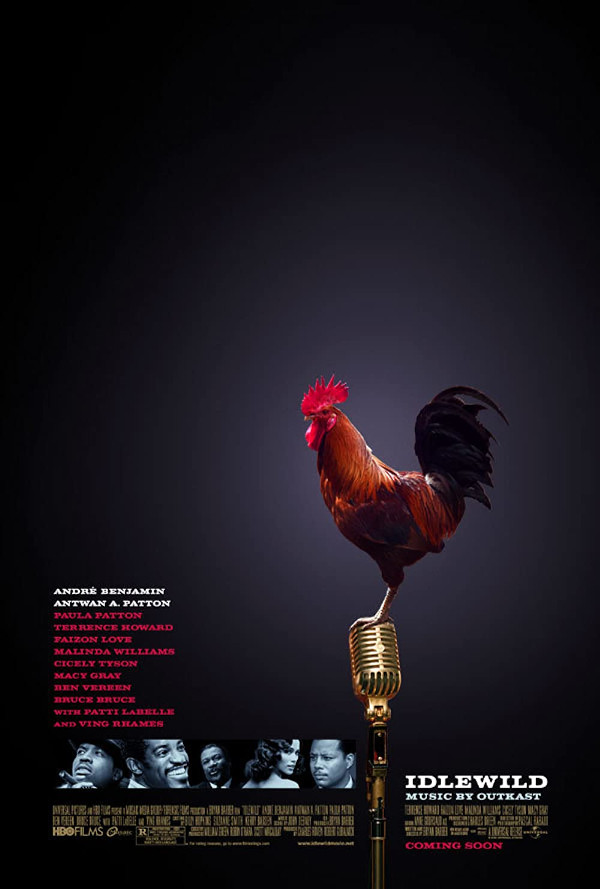- Title: Idlewild
- IMDb: link

A musical about Prohibition? That stars hip-hop stars? Oh, dear. Idlewild is never quite what you expect it to be, but then it’s never quite what you want it to be either. Too long, overly ambitious, and with some very poor MTV-like music video moments, the film keeps falling down, and eventually you stop caring if it gets back on its feet. And for a musical it’s severely lacking in good, or even appropriate, music. Still, there’s some nice performances and camera work for those not interested in silly stuff, like a coherent plot.
Take one part Harlem Nights and mix it with two parts Moulin Rouge! and you end up with something like Idlewild. And if I have to see one more film where the most beautiful and talented woman, not only falls for, but, chases after the talented, introverted, shy character, who lives with his parents, I think I might riot. There’s fantasy, and then there’s fantasy.
Percival (Andre Benjamin) works with his father (Ben Vereen), a drunken, broken, and bitter man, at the funeral home. At night he works as a piano player at a local speakeasy run by his childhood friend Rooster (Big Boi). Rooster runs things at the club for Spats (Ving Rhames) until he meets a bitter end by a younger, and more brutal, gangster looking to take control of the action (Terrence Howard).
There’s also a young lounge singer named Angel (Paula Patton) who, almost from the very second of her arrival, begins a relationship with Percival, Percival’s relationship with his father and his dreams to be a performer, Rooster’s relationship with his wife (Malinda Williams) and daughters, and his mistress (Paula Jai Parker), and the club run by the corrupt Ace (Faizon Love) supplied with liquor by Spats, and the politics inside the club between the local diva (Macy Gray) and Angel. Oh, and there’s Angel’s secretive past, too.
Get all that? You might want to take a scorecard with you.
In terms of plot and storytelling the film is just a mess. There’s so much going on that you keep jumping from story, to story, to story. While this may keep you on your seat, unable to guess what will happen next, it also has the unintended effect of only barely skimming the surface of any of these plot threads, let alone the characters that inhabit them.
As a musical the film borrows heavily from Moulin Rouge! by using modern music, here hip-hop and some rap, in the period of the 1920’s. The effect is bizarre and different, but not necessarily entertaining. Nor is the filming of musical scenes, those that don’t take place on the club’s stage, in a music video style that is glaring different from the rest of the film. That combined with the director’s odd foot fetish, he just loves focusing the camera on feet, may help give the film style, but what it really needs is substance.
For fans of filmmaking there are few interesting pieces. The cinematography and intriguing special effects, used to give the film its syle and help tell the story, are two of the better aspects of the film – including some wonderfully creative visuals.
I give all the credit in the world to writer/director Bryan Barber for attempting to do something different. I do think he watched Moulin Rouge! a bit too much, however. His main failure here is trying to jam an entire mini-series of separate plots and stories into a single two hour film. It just doesn’t work. That, along with the music video scenes, and the lack of any specific tone throughout the film, make it impossible for me to recommend it. I am interested to see if he learns and grows as a filmmaker, and just what his next project, or two, will be.

